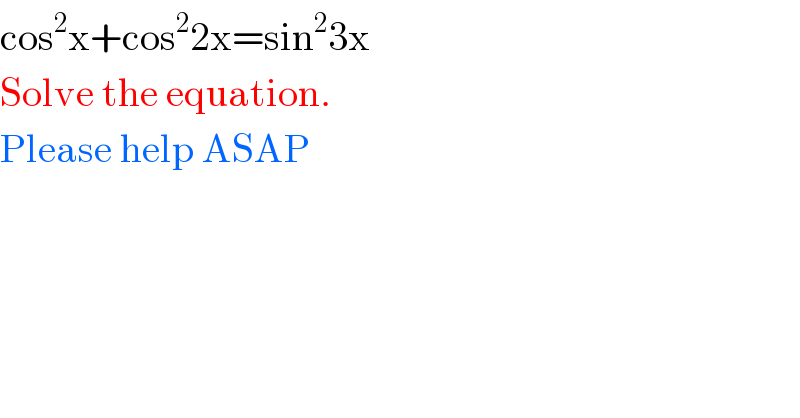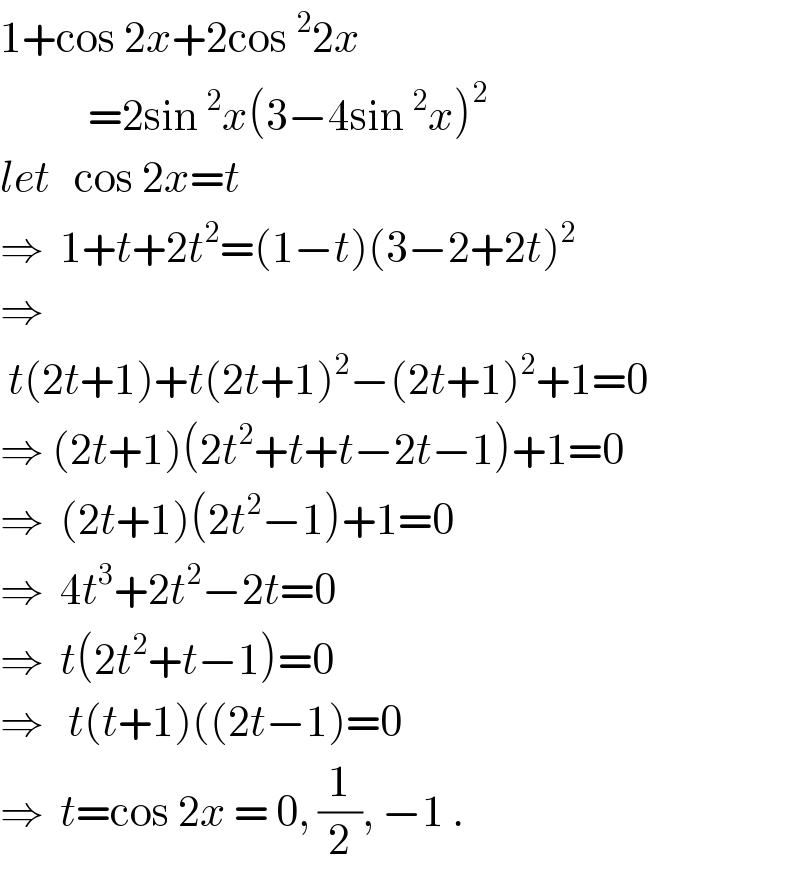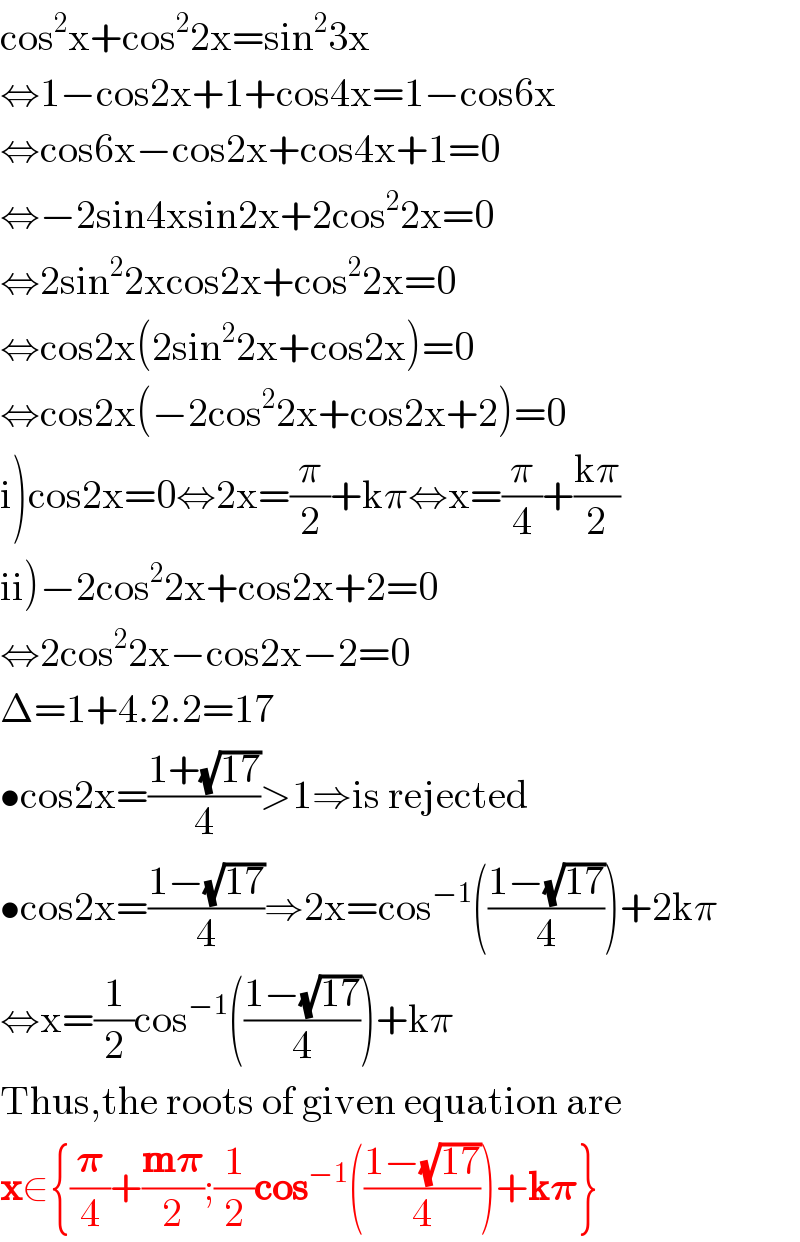
Question and Answers Forum
Question Number 108143 by abony1303 last updated on 15/Aug/20

Answered by ajfour last updated on 15/Aug/20

Answered by 1549442205PVT last updated on 15/Aug/20

| ||
Question and Answers Forum | ||
Question Number 108143 by abony1303 last updated on 15/Aug/20 | ||
 | ||
Answered by ajfour last updated on 15/Aug/20 | ||
 | ||
| ||
Answered by 1549442205PVT last updated on 15/Aug/20 | ||
 | ||
| ||